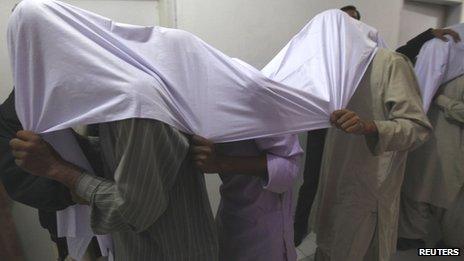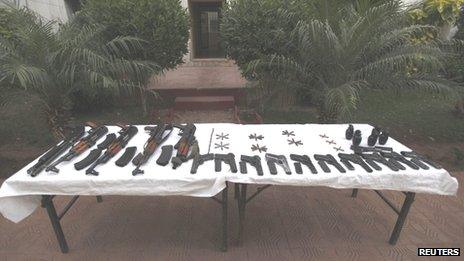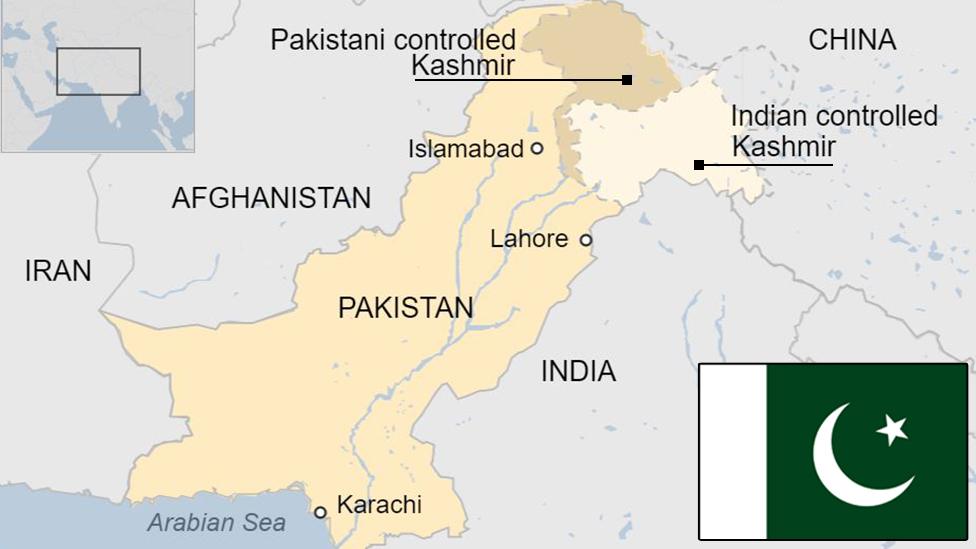Profile: Lashkar-e-Jhangvi
- Published

Both the Taliban and the LeJ belong to the same orthodox, puritanical Deobandi tradition of Islam
Lashkar-e-Jhangvi (LeJ) is one of Pakistan's most violent Sunni Muslim militant groups.
It takes its name from the late Sunni Cleric Haq Nawaz Jhangvi, who spearheaded the anti-Shia campaign which began in the country 30 years ago as a counter-movement to the Iranian Islamic revolution.
Mr Jhangvi was a founding member of Sipah-e-Sahaba Pakistan (SSP), a group blamed by many for introducing sectarian violence to the country.
Researchers say that the Islamisation policy introduced by Pakistan's former military leader, General Zia-ul-Haq, in the 1980s allowed the emergence of SSP in 1985.
The group resorted to violence against the Shia community almost immediately.
Path of violence
The campaign got bloodier when a rival Shia group, Tehreek-e-Nifaz-e-Fiqah Jafferia (TNFJ) challenged it, resulting in the deaths of the top leaders of both sectarian groups, including Mr Jhangvi.

Police regularly display captured Lashkar-e-Jhangvi weapons
Within a decade the conflict led to fissures within the SSP and in 1996 LeJ broke away under the leadership of Riaz Basra.
He wanted to continue on the path of violence against Shias and rejected a call from other Sunni militant leaders to join mainstream politics and scale down attacks.
Calling themselves "Jhangvi" loyalists, the Lej - or Army of Jhangvi - began allying itself with the Taliban movement which was just taking over in Afghanistan.
Both the Taliban and the LeJ belong to the same orthodox, puritanical Deobandi tradition of Islam associated with the Islamic revivalist movement in the region.
The connection helped Mr Basra and his group to seek refuge in Afghanistan.
Government intelligence agencies have pointed to several LeJ militant training camps in Afghanistan. These camps were used not only to train anti-Shia militants but also as safe havens for Pakistani criminals and militants.
In August 2001, Pakistan's military leader General Pervez Musharraf banned a number of militant organisations, with LeJ top of the list.
In May 2002 Riaz Basra was killed, and analysts believe that the group began to develop links with Osama Bin Laden's al-Qaeda network.
Such fears were proved right when investigators found links between LeJ relating to three 2007 incidents in Pakistan which were all blamed jointly on al-Qaeda and the LeJ.
These included the kidnapping and beheading of US Journalist Daniel Pearl, an attack on French engineers in Karachi and a bomb attack on an Islamabad church.
- Published4 October 2011
- Published15 March 2024
